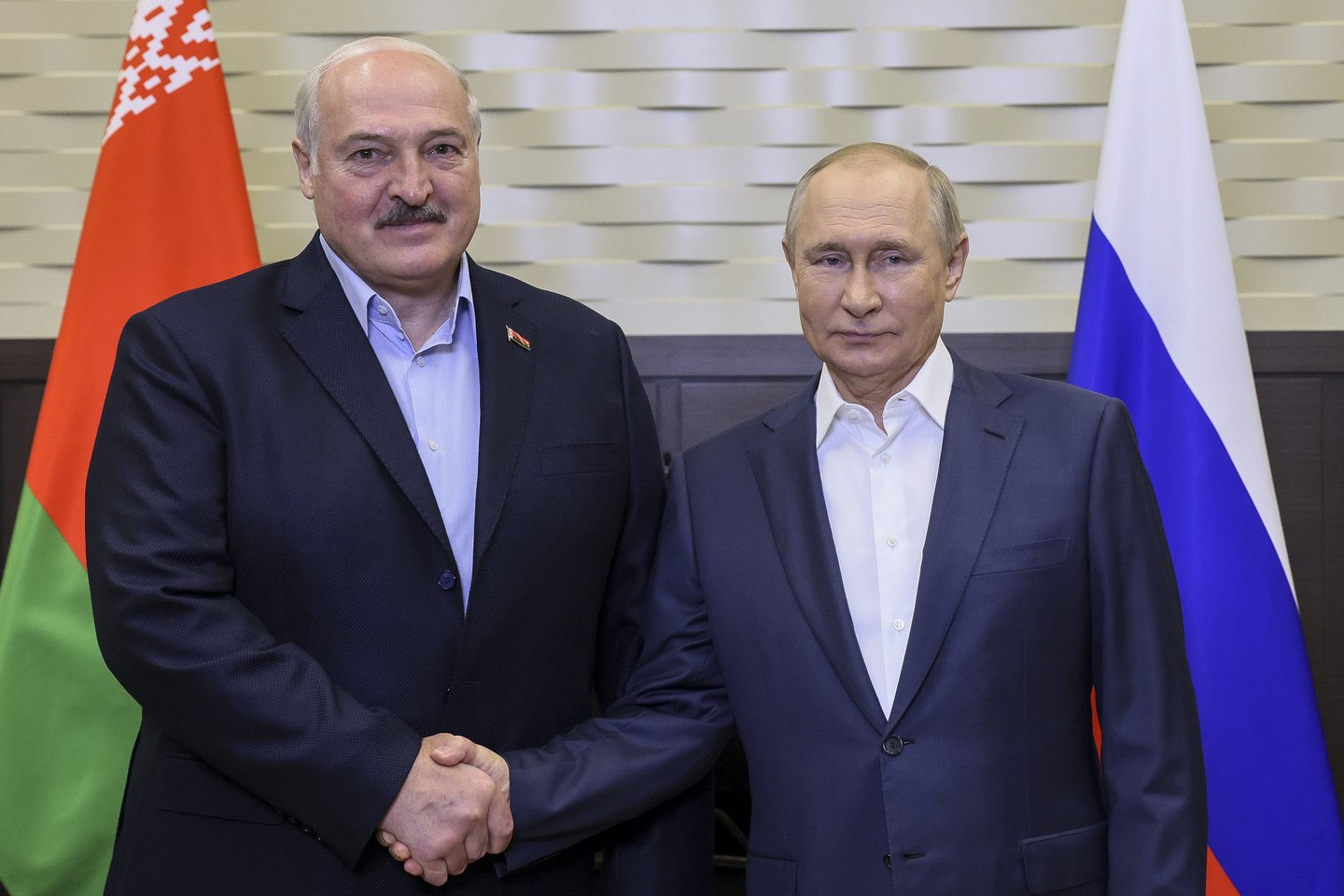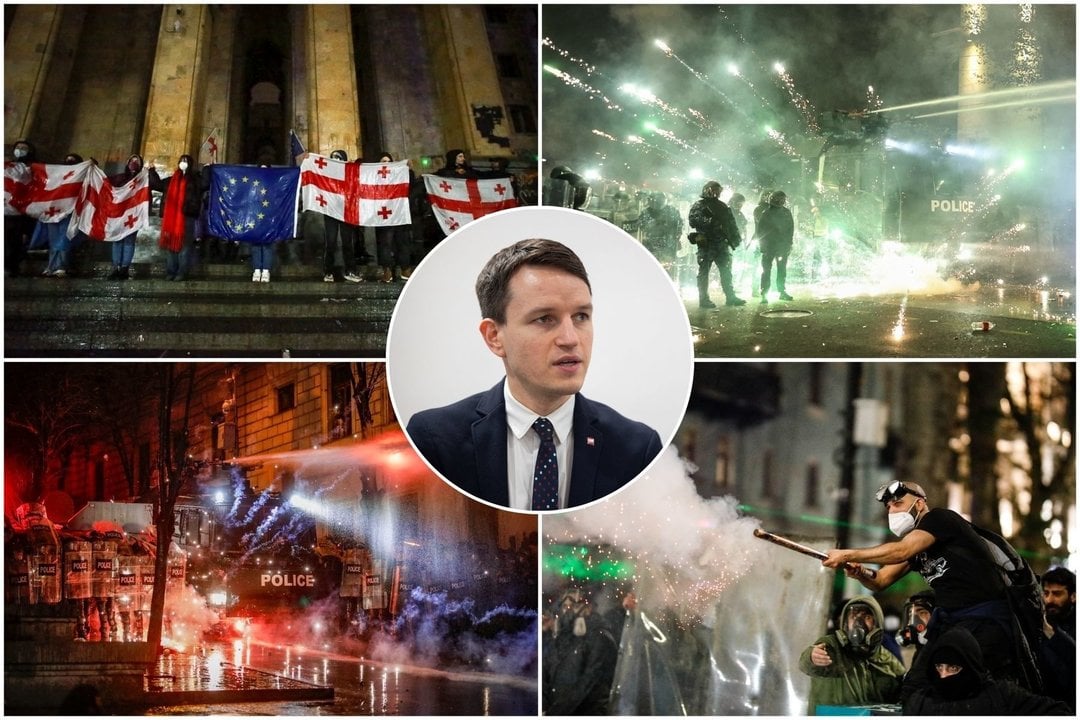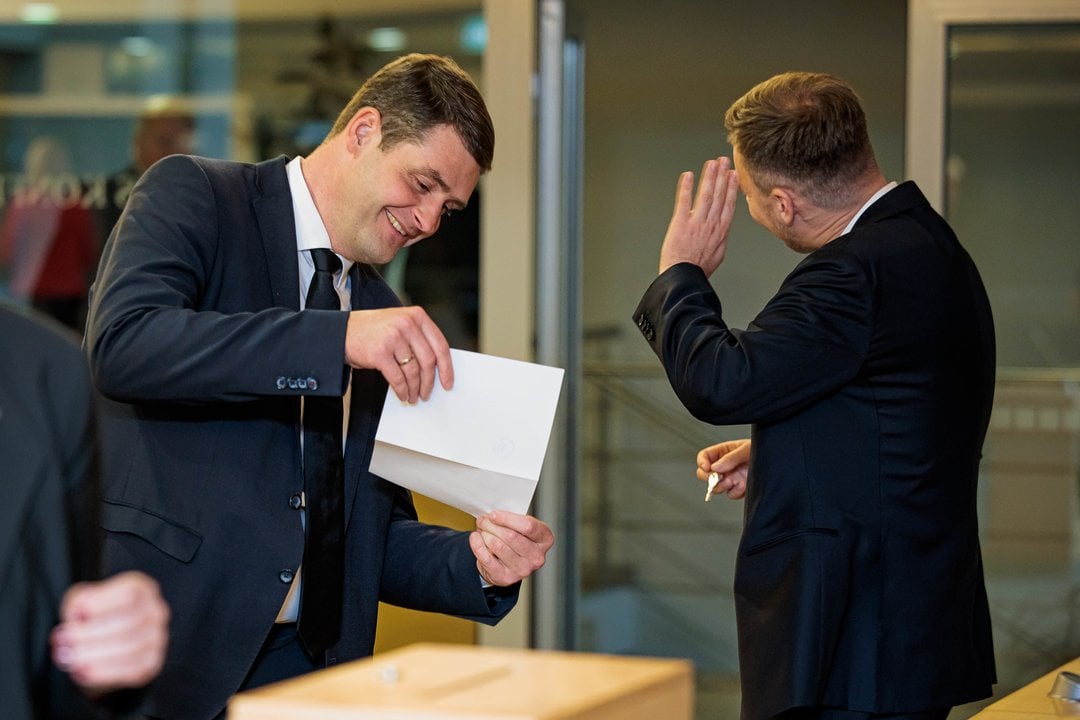At the beginning of the war, Belarus became an accomplice to aggression against Ukraine - providing its territory for the movement of Russian troops towards Kyiv and sites for launching at least seven hundred missiles. At the same time, Lukashenko said he was doing everything he could to stop the bloodshed. But last week he confirmed his involvement in the aggression:
"As for our participation in the special military operation - we participate there, we don't hide it. But we don't kill anyone, we don't send our military anywhere. Yes, we treated people if we have to. Yes, we feed," he said at a military security meeting on October 4.
Alexander Friedman, a German historian originally from Belarus, explains whether we can expect an escalation of the situation and more active participation of the country in the war.
Nuclear weapons would defeat attempts to justify
- Did Belarus attack Ukraine?
It would be more correct to say that Lukashenka provided the territory for the attack. But it's not just about the fact that they carried out the movement from the territory of Belarus. That's where the loot was taken, and the war criminals retreated.
- Can Belarus move to a more active role?
Anything is possible, from the active participation of Belarusan troops to the entry of Russian forces into the territory of Belarus.
The U.S. considers introducing nuclear weapons into the territory of Belarus and the occupied territory of Ukraine as one of Russia's possible escalation steps. This option is not the worst for Lukashenka: it gives additional guarantees for the regime's existence. The downside is that it would take Belarus to a different level in the conflict. If Lukashenko is holding any negotiations behind the scenes, they will end.
The Russian army is easy to invite and difficult to remove
In the Baltic States, the prevailing viewpoint is that Lukashenko hasn't solved anything himself for a long time and that Belarus is an occupied territory. I believe this is still an exaggeration, but it is really doubtful that he can resist Russia with his power structures.
It is also disadvantageous to invite the Russian army, which is then difficult to withdraw. Lithuanians especially understand this example: the Soviet occupation of the countries began with introducing the Red Army contingent in still independent Lithuania. In the same way, the Russian soldiers in Belarus could be activated at any moment to overthrow Lukashenko's regime.
- Now, the Russians are leaving the country, including through the territory of Belarus. The Belarusian authorities declare that they will catch them. And recently, the Ukrainian intelligence service reported that 20 thousand mobilised Russians would be placed in Belarus - is it possible?
In Lithuania, by the way, it all started exactly with 20 000 Red Army soldiers. It is absolutely possible, and this is what Lukashenko can eventually do. Although, Moscow is expecting him to take other steps, which can further destabilise the situation in the region. These are the mobilisation of the Belarusians, deployment of Russian troops, nuclear weapons, and recognition of Ukraine's occupied regions as part of Russia.
Lukashenko is looking for a new patron - China
This week, Lukashenko tried to deliver two things.
The first is to show the Belarusians, Ukraine and the West that he does not want active participation. He does not want what it was [at the beginning of the invasion] - and with such words, he creates the basis for subsequent excuses that he was forced. He also tries to reassure people in Belarus that they will not be mobilised.
The second is his rhetoric that he is involved in a particular operation and supports Russia. It is engaged deliberately to distract from the main question of these days - whether he recognises the results of "referendums" in the occupied territories [Kherson, Zaporizhzhia, Luhansk and Donetsk regions].
There was another important point that no one paid attention to. Lukashenko said that the Americans are to blame for everything, but their goal is first to deal with Russia and the EU, and then to deal with a more serious enemy - China. So he is flirting with China and looking for a new patron from whom to get support.
What have the Belarusians achieved by the 2020 protests?
- Is Lukashenko turning into a good hero?
At the moment, his personal interest (the least possible involvement in the war) simply coincides with the interests of the Belarusan population, for whom it is essential not to fall under the millstone of the war. The war chops the bough of his regime, and it is unprofitable for him to send the Belarusans to war.
- Can this be linked to the 2020 protests?
Of course. He has been traumatised. Lukashenko knows very well the number of people who took to the streets, and he has no confidence in the population.
Society itself is in a state of fear. A silent swamp can boil over if you step in the wrong place. It is split into those who sympathise with Russia and Ukraine or those who are indifferent - but overwhelmingly, they see this war as alien.
If subpoenas or cargo-200 (editor: cargo-200 is a dead solder in the Russian Federation army), it will destabilise the regime. But Lukashenka may have no choice if Russia presses him or if there is a strike from the Ukrainian side (either Ukrainian or Russian staged).
If Lukashenko sends troops, the Belarusians will become part of the fratricidal war. The Belarusians who are fighting as part of the Ukrainian Armed Forces can also be sent to fight against the Belarusian army.
- Is there an optimistic one?
Yes. The one that in February and March was considered unrealistic, and even today is not particularly likely - a putsch in Moscow against the backdrop of Ukraine's victories and Putin's removal from power. Of course, this does not mean that freedom and democracy will come to Russia. But Putin's departure will remove the threat of nuclear war.




